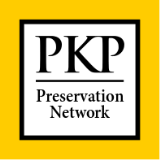The Indispensable Role of Guidance and Counseling as a Veritable Tool for Re-Cultivating Academic Integrity in Tertiary Institutions in Cross River State, Nigeria
Keywords:
Indispensible, Guidance and Counseling, Veritable tool, Re-cultivating, Academic integrityAbstract
The study examined the indispensable role of Guidance and Counseling as a veritable tool for re-cultivating academic integrity in tertiary institutions in Cross River State, Nigeria. Two research questions and hypotheses were utilized. The survey design was adopted; since the study was concerned with determining the opinion of respondents in the study area. The population was 11765 and a sample size of 603 respondents, which comprises 251 males and 352 female students were randomly selected from one federal institution and one state-owned institution. The instrument for data collection was a 4-point Likert questionnaire titled Counseling as a veritable tool for re-cultivating academic integrity questionnaire (CVRAIQ) which consists of 30 items and ranged from Strongly Agree, Agree, Disagree, and Strongly Disagree. The instrument was validated by experts in measurement and evaluation the reliability co-efficient ranged from 0.91- 0.97. The findings revealed that the level of academic integrity among students in tertiary institutions is low. In addition, it was revealed that if guidance services are properly utilized in tertiary institutions it would help to curb the menace of academic dishonesty. It was recommended that tertiary institutions should instill good morals, values and maintain high academic integrity through the utilization of guidance and counseling.
References
Ahmed, R.(2017). Teacher guidance and counselling efforts to prevent cheating behavior. Proceedings of the 9th international conference for science educators and teachers (ICSET2017) https://doi:org/10.2991/icset-17.2017.126
Asuka, N., & Oyaziwo, A., (2017) Higher education funding and student finance – Gov. UK. Students in higher education vol 39.http://dx.doi.org/10.1080/03075079.2012.709495
BBC Africa Eye 2019 http://saharareporters.com/sex-for-marks
Brown, G.(2011). Emotional geographies of young People’s aspirations for adult life. Children’s geographies,9(1),7-22,dio:10.1080/14733285.2011.540435
Bruce, M.(2015) Academic integrity: A review of the literature. Studies in higher education vol(39). http://dx.doi.org//101.1080/03075079.2012.709495
Cummings, W.(1998). The service university movement in the US: searching for momentum. Higher Education 35,no-1:69-90
Daily Independent. (2004). Principal arrested for impersonation at exam hall. In J. B. Olatunbosun (2009),Examination malpractice in secondary schools in Nigeria: What sustains it? European Journal of Educational Studies, 1(3). (Online) Available: ozelacademmy.com /EJESV1N3_1.pdf
Denisova, A, Schmidt, E & DeWit, H.(2017). The Global challenge of corruption in Higher Education. Au Horizons,22,1,28-29
http://punchng.com/nysc-arrests-65-fake-graduates-nationwide/amp
Kano, C.,(1998). Examination malpractice and its effects in the Nigerian society. The Nigerian society chronicle, 15:14-22
Macfarlane, B & Ottewill, R. (2004). A special context: Identifying the professional values Associated with teaching in Higher Education. International journal of ethics 4,no.1:89-100.
McCabe, D, Trevino, L & Butterfield, K.(2001) Cheating in academic institution. A decade of research ethics & behavior, (3), 219-232.dio:10.1207/515327019eb1103_2
Miller, A., Murdock, T.,Anderman, E., & Poindexter, A. (2007). Who are all these cheaters? Characteristics of academically dishonest students. In Anderman, M & Murdock, T. (eds),psychology of academic cheating (Pp-9-32) Amsterdam: Academic press.doi:10- 1016/b978-012372541-7/50003-6
Nigerian Tribune. (2009). Students and exam malpractices, Lagos. In J. B. Olatunbosun (2009),Examination malpractice in secondary schools in Nigeria: What sustains it? European Journal of Educational Studies, 1(3). (Online) Available: ozelacademmy.com /EJESV1N3_1.pdf
Nixon, J.(2004). Education for the good society: The integrity of academic practice. London, Review of Educaion 2,no.3:245-52
Olatunb-osun (2009), Examination malpractice in secondary schools in Nigeria: What sustainsit? European Journal of Educational Studies, 1(3). [Online] Available:ozelacademmy.com/EJESV1N3_1.pdf
Schelkin, L., Gilbert, K., & Silva, R. (2010). Multidimensional scaling of high school students. Perceptions of academic dishonesty. High school journal, 93(4), 156-165.doi:10.1353/hsj.2010.0001.
Times Higher education (2019).World university rankings.http://www.timeshighereducation.com
Transparency International UK.(2011). Corruption in the UK. Overview and policy recommendations.Parts1-3,June.Availablefrom http://www.transparency.org.uk/publication/corruption-in-the-UK-overview-policy- recommendation.(Accessed February 9,2017)
Vanguard. (2005). “Rising exams malpractices” Vanguard Comment. In J.B.Olatunbosun(2009), Examination malpractice in secondary schools in Nigeria: What sustains it? European Journal of Educational Studies, [Online]Available:ozelacademmy.com/EJESV1N3_1.pdf
Weekend Pointer. (2005). “Father writes GCE exam for son.” In J. B. Olatunbosun (2009),Examination malpractice in secondary schools in Nigeria: What sustains it? European Journal of Educational Studies, 1(3). [Online] Available: ozelacademmy.com/EJESV1N3_1.pdf
Wu, Z.(2010). Teaching postgraduate academic integrity through the discussion of integrity in the analects of Confucius: journal of Educational development 10:79-81
Downloads
Issue
Section
License
Copyright (c) 2021 Imbush, Jeremiah Imbush, Nsan Ogar Inongha, Dr Ogban Itang Usetu

This work is licensed under a Creative Commons Attribution-NonCommercial 4.0 International License.






.png)


